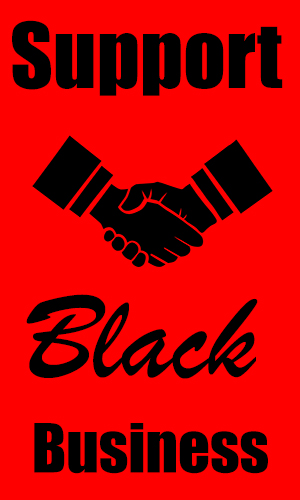
How Can Black Businesses Survive COVID-9?
By Cash Michaels

Will Black businesses like restaurants, barber shops and beauty salons, and others, survive the novel coronavirus (COVID-19) pandemic, or fall prey to the current “stay-in place” safety restrictions?
And if they do survive, can they navigate a probable national economic recession?
“Music is GONE,” opines popular jazz singer Eve Cornelious. “Self-employed musicians are in trouble.”
Both are open questions now, particularly in a state that boasts to be in the top five when it comes to Black businesses nationwide. Given the historic struggles Black businesses encountered long before the “Rona” - as some in the community nickname COVID-19 - began infecting the nation earlier this year, there is serious doubt about what will happen next.
In a normal environment, Black businesses face being pigeon-holed racially; lack both the capital and access to credit to build and hire more in the community; have to compete with non-Black businesses sometimes within their own communities; adequately pay bills even when patrons fail to pay theirs on-time; not considered good enough; and maintaining product and service quality.
Indeed, according to national figures, eight out of ten Black business startups fail in the first year.
“Black-owned companies averaged lower sales than those with white, Asian, and Hispanic owners, according to Inc. Magazine.
Now comes the coronavirus, and in an effort to slow down transmission of the dangerous infectious disease, Governor Roy Cooper orders all restaurants, bars and “nonessential” businesses closed, and for people to stay at home.
That order effectively closes many small businesses in the Black community, let alone many small businesses overall.
Ideally, what was supposed to happen once the $2.3 trillion CARES (Coronavirus Aid, Relief and Economic Security) Act was passed by Congress in March was small businesses were to have access to $350 billion “Payroll Protection Program” in loans (up to $10 million) from the federal government to the stave off layoffs and closures if employees are forced to stay home.
There was also $10 billion for emergency $10,000 grants for small businesses for operating expenses.
If a company has 500 or fewer workers, and it maintains its payroll during the pandemic shutdown, the employer could receive up to eight weeks of cash-flow assistance from the government. And if the business owner continued to pay employees while essentially shutdown, the portion of the government loan from the bailout used to cover payroll, pay interest on an outstanding mortgage, rent and utilities, would be forgiven.
But reportedly, what Trump administration officials promised would be a simple process of just going to the bank and making application online for the CARES Act loan, has turned out to be anything but for small businesses overall, thanks to administrative problems with the U.S. Treasury and the Small Business Administration.
And worst of all, banks would favor small business customers they already have a lending relationship with.
That one factor has locked a large number of small Black businesses out, primarily because many aren’t able to access substantial credit on a normal basis, and thus, don’t have the strong bank relationship required to take advantage of the CARES Act loan.
Ironically, the CARES Act does provide funding to the Minority Business Development Agency, but it’s only $10 million.
It may take follow-up Congressional funding, along with strong input from the Congressional Black Caucus, for small Black businesses to get the real financial assistance that they need to survive the coronavirus.


